Doctors recommend us to sleep for eight straight hours every day because it is good for our health and well-being. But, if you are struggling to fall asleep or staying asleep, you must reconsider your sleep schedule. Perhaps, it’s time for you to try segmented sleep. Here’s why…
What is segmented sleep
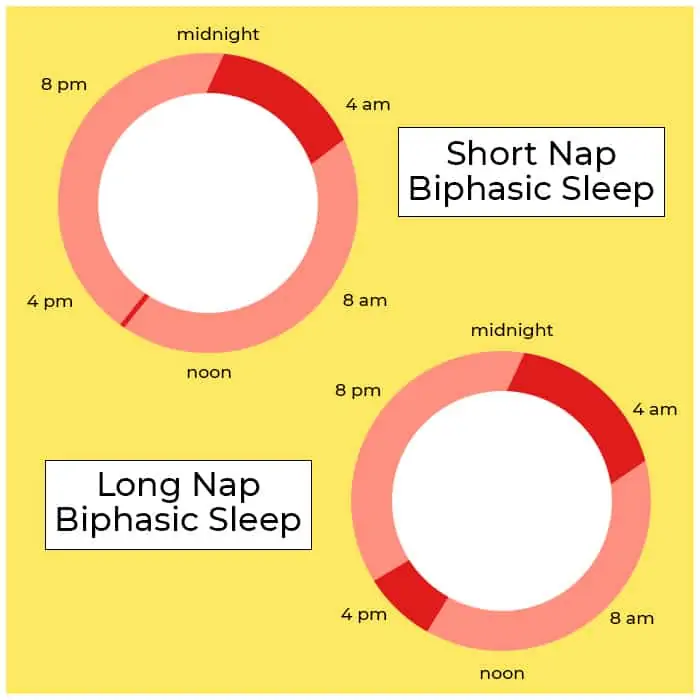
Roger Ekrich, Professor of history at Virginia Tech in the United States. has conducted intense research into pre-industrial sleeping patterns. He found that our ancestors broke up their slumber into two shifts, separated by one-to-three hours of wakefulness. These periods were known as first sleep, which was just after dusk, and second sleep, which lasted until morning. This type of sleep is called segmented sleep or biphasic sleep.
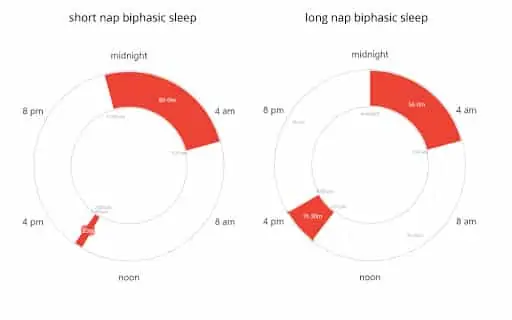
What happens in the waking period between the first and the second sleep?
Anything productive like writing, playing music, smoking, praying, having sex, or visiting friends. Even today a lot of people wake up at midnight to study or research or meditate or generate a productive project.
Read What Is REM Sleep? Why Is It Important For You
Actually many people are following a split sleep schedule, with zero awareness about segmented sleep. On the other hand, some people are thinking segmented sleep is a new supercool sleep trend that can be a great relief from stress caused by the fast-paced life – least aware that it was a normal sleep pattern for people in the pre-industrial times.
In the early 1990s, Thomas A. Wehr, MD, put eight men in a room for a week subjecting them to 14 hours of complete darkness a day. The men slept for 4 hours, followed by about 3 hours of wakefulness, and then another f4 hour period of sleep, he found that these men developed sleep patterns that resembled the lifestyle of our ancestors before the invention of electric lights.
When the participants in his experiments shifted from the 16-hour “days” and 8-hour “nights” customary for them (and for others in developed countries, who depend on artificial light) to the “natural winter” conditions of his experiment, they first slept for 11 hours and then began to sleep for an average of 8.9 hours, as compared with 7.2 hours under ordinary conditions.
Wehr also observed that when given 14 hours of darkness, it took participants in bed rest about 2 hours to fall asleep compared with 15 minutes under usual conditions. This is an interesting thing to note because many of us believe that a good night’s sleep means falling asleep as soon as we hit the bed.
The notion that eight straight hours of uninterrupted sleep is the “natural” and “healthy” sleep cycle is being called into question by the above reaserch. Keeping aside the causes and consequences of insomnia, what we consider as normal sleep patterns, is it normal at all?
Read Afternoon Naps are a sign of Health and NOT Laziness
Implications of segmented sleep
Wehr’s study and similar findings have sparked interest in segmented sleep, where most study participants have reported feeling better-rested. The recent buzz about the midday naps at work backed by the examples from some of the celebrated authors like Jane Austen, Charles Dickens, and Leo Tolstoy, also suggest that segmented sleep may be the new normal.
There are many psychological and behavioral implications of segmented sleep according to Ekrich. He noted that in ancient times mid-night wakefulness was seen as a calming time for prayers or any productive activity. He tried segmented sleep and overcame insomnia (which was a time of anxiety and worry), by getting up and working for a couple of hours, then returning to a period of deep, “second” sleep.
On asking a highly-published research psychologist for her secret to incredible productivity, Ekrich learned that she systematized the segmented sleep pattern. She indulged in intense work from 2:00-4:00 am before returning to a second sleep period.
Based on research and personal experience, Ekrich believed that using the waking period productively or as a period of meditation may help calm anxious individuals worried about not getting their 8 straight hours.
His findings also concluded that eight hours of uninterrupted sleep may not be normal at all. And people must have this knowledge, which may reduce anxiety and worry and lead to a better sleep experience.
Some of the key advantages of segmented sleep as evident from the literature are –
- Enjoy quiet time without work pressure and social distractions
- Enjoy quality rest in two periods than you may get in one, uninterrupted block
- Work on important chores to begin the day ahead of schedule
- Have a quality family time
- Engage in spiritual practices
- Use time for relaxing activities like meditation or self-reflection
- Increase the ability to recall dreams and the chance to experience lucid dreaming
Now what we need to know is – can everyone enjoy the advantages of segmented sleep?
How healthy is the segmented sleep?
There are mixed views about the benefits of segmented sleep in the current time. Some find it beneficial while others too difficult to follow. And there are various factors playing the role like sleep disorders, medical condition, family issues, your body metabolism, age, work-life balance, and many more.
According to Mary Carskadon, PhD, a sleep researcher at Brown University, segmented sleep may or may not be beneficial for everyone. It may be comfortable for singles out there, but not for those married and having kids and a hectic job schedule. Because they don’t have enough time to break their sleep into two segments.
Even if they try segmented sleep, they may end up sleeping for fewer hours than what our body requires (i.e 7-8 hours for adults), which can lead to severe health complications in the long run such as obesity, stroke, heart disease, change in metabolism, risk of accidents, poor learning and memory, and mood disorders.
Read 13 Terrifying Health Effects of Sleep Deprivation
Having similar views, Timothy A. Connolly, MD, a sleep specialist at the Center of Sleep Medicine at St. Luke’s Episcopal Hospital in Houston, said that segmented sleep may have been natural and beneficial for our ancestors but in present-day having two rounds of sleep or sleeping in shorter sessions is impractical, and can be destructive.
So, if you are naturally inclined to break your slumber into two shifts and have experienced no side effects so far, then it’s okay.
But, if you are planning to experiment with segmented sleep, then make sure to avoid artificial lights (produced by computers, TV, smartphones) that can overstimulate your brain. Blue lights or lights from LED bulbs have a significant impact on your circadian rhythms.
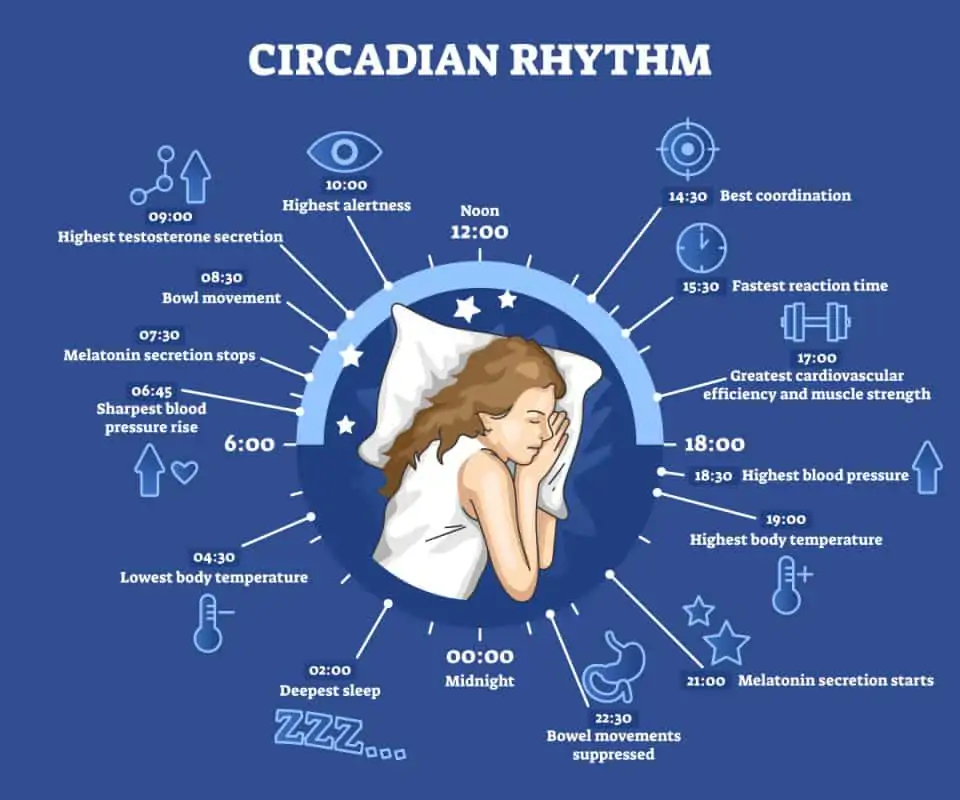
So, you may have trouble falling back to bed during the first or second sleep. Using dim light at night can protect the biological clock that controls the processes in your body.
Read What Your Sleeping Position Reveals About Your Personality
When trying alternative sleep schedule, watch out for the warning signs like – short temper, feeling sleepy in the middle of the work, short temper, and concentration issues. If these signs persist, it’s better to stick to the conventional sleep schedule. Else, continue with segmented sleep!
If you often face trouble falling asleep or staying asleep, then you need to follow a strict bedtime routine like babies. Avoid alcohol or caffeinated drinks, eating heavily before bed, and electronic noise in your room. Besides good sleep hygiene cultivate the habit of paying back the sleep debt. If you have slept 2 hours less today, make sure to sleep 2 hours extra tomorrow. These measures will help you enjoy healthy sleep!
In my opinion, it is better to aim for healthy sleep rather than segmented sleep, which may or may not suite our busy lifestyle.
What do you think?
References
- Ekirch, A.R., 2001. Sleep we have lost: pre-industrial slumber in the British Isles. The American Historical Review, 106(2), pp.343-386.
- Brown, W.A., 2006. Acknowledging preindustrial patterns of sleep may revolutionize approach to sleep dysfunction. Psychiatric Times: Applied Neurology, 26.
- Ekirch, A.R., 2016. Segmented sleep in preindustrial societies.
- Samson, D.R., Yetish, G.M., Crittenden, A.N., Mabulla, I.A., Mabulla, A.Z. and Nunn, C.L., 2016. What is segmented sleep? Actigraphy field validation for daytime sleep and nighttime wake. Sleep health, 2(4), pp.341-347.
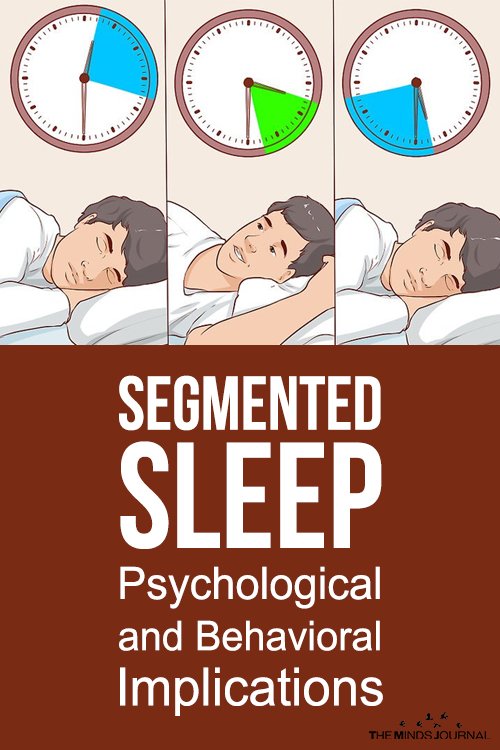

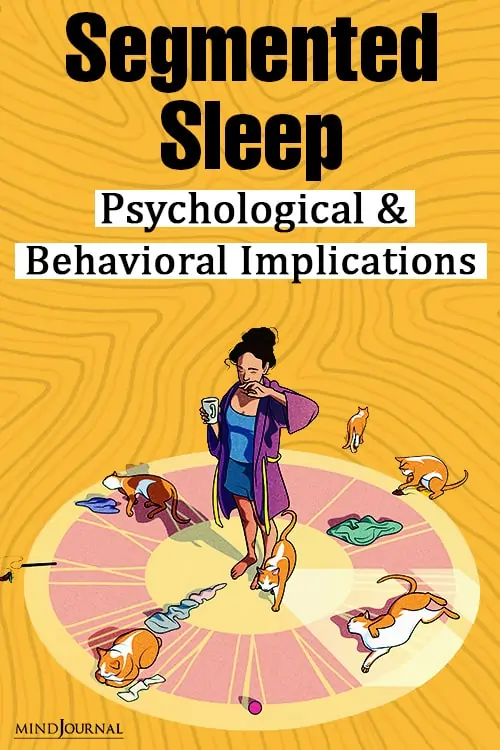








Leave a Reply
You must be logged in to post a comment.